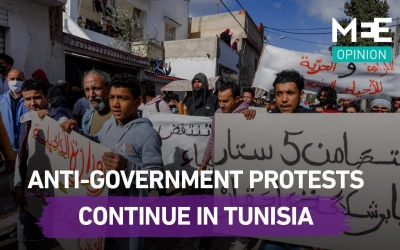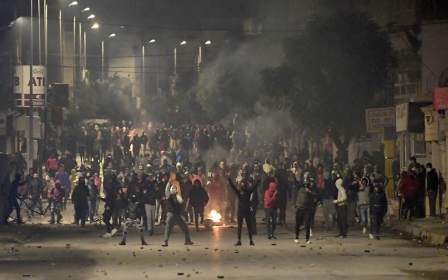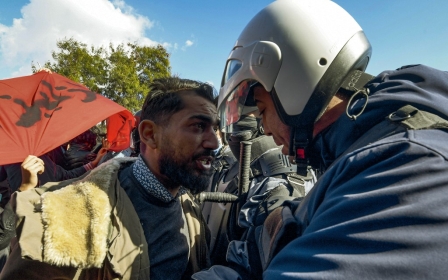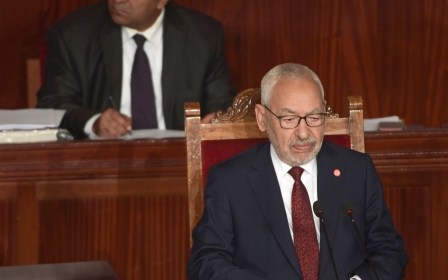Tunisia's Ennahda holds large street protest, fuelling government crisis

Tunisia's biggest political party, Ennahda, rallied tens of thousands of supporters in the capital on Saturday in a show of strength amid a dispute between the president and prime minister.
In the biggest demonstration in Tunisia in years, Ennahda supporters poured into the centre of Tunis on 27 February from across the country, chanting "the people want to protect institutions" and "the people want national unity".
The moderate Islamist party, led by Parliament Speaker Rached Ghannouchi, has backed Prime Minister Hichem Mechichi in his stand-off with President Kais Saied over a cabinet reshuffle which has paralysed the government.
The dispute has brought to a head months of wrangling between the three men in Tunisia's latest political crisis since a 2019 election delivered a fragmented parliament while propelling Saied, an independent, to the presidency.
The government crisis comes as Tunisia's economic crisis, exacerbated by the coronavirus pandemic, has sparked rapid inflation and high youth unemployment, which has led many people to leave the North African country.
Saied nominated Mechichi as prime minister last summer when the government collapsed after only five months in office, but the two men soon fell out.
Mechichi then turned for support to the two biggest parties in parliament - Ennahda and Heart of Tunisia, led by jailed media mogul Nabil Karoui.
Last month, Mechichi changed 11 ministers in a reshuffle seen as replacing allies of Saied with those of Ennahda and Heart of Tunisia. The president, however, has refused to swear in four of them, saying they had conflicts of interest.
Meanwhile, during protests last month over inequality and police abuses, demonstrators focused most of their anger against Mechichi and Ennahda.
While Ennahda has labelled its march as being "in support of democracy," it is widely seen as an effort to mobilise popular backing against Saied, raising fears of competing protest movements that could lead to polarisation or violence.
Despite a number of democratic elections since the 2011 removal of longtime president Zine El Abidine Ben Ali, protests have continued to break out, especially in the central and southern regions, where youth joblessness has reached 30 percent and the poverty level is above 20 percent.
In 2020 alone, the Tunisian Forum for Economic and Social Rights recorded 6,500 protests, all of which were motivated by economic, social and environmental demands.
Middle East Eye delivers independent and unrivalled coverage and analysis of the Middle East, North Africa and beyond. To learn more about republishing this content and the associated fees, please fill out this form. More about MEE can be found here.





